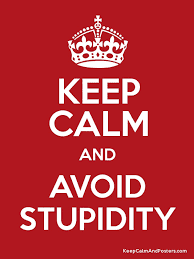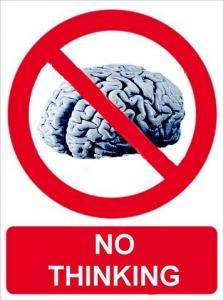
In December of 1942, Dietrich Bonhoeffer wrote a Christmas letter to a number of his friends, relatives, and colleagues—people with whom he had been involved for the previous decade in various escalating behind-the-scenes and increasingly dangerous attempts to undermine the rule of Adolf Hitler and the Nazi party. This letter has come to be known as “Ten Years After.” As his fellow conspirators waited to see if the latest of numerous attempts to assassinate the Fuhrer would finally be successful, a clearly exhausted and concerned Bonhoeffer reflects on the psychological and emotional costs of the past decade as well as wondering what the future will hold.
Less than four months after writing “After Ten Years,” Bonhoeffer was arrested, along with the majority of his fellow conspirators, by the Nazis for his involvement in the latest plot to assassinate Adolf Hitler. Bonhoeffer was executed in 1945 at Flossenberg prison, just weeks before the end of World War Two. “Ten Years After” is comparable to Martin Luther King, Jr.’s “Letter from Birmingham Jail” as a document addressing the specific challenges of their times by speaking to greater issues, including the human capacity for decency, courage, and engagement in the midst of political cultures that fail to honor integrity and these values. How is one to think beyond self-interest and toward the common good in challenging times?
In “After Ten Years,” Bonhoeffer observes how easily human beings are swayed and seduced by peer pressure and crowd behaviors. Although his context was Nazi Germany, his observations about what happens to human decency and courage when a political culture begins to disintegrate and a social atmosphere becomes toxic read as if they were written this morning. Bonhoeffer wrestles with what happens to good people, to the soul, and to the human sense of morality and responsibility, when evil becomes so embedded in a political culture that it is part of the very fabric of daily life, and it becomes impossible for good people to remain untouched by it.
 One of the most written about and discussed portions of Bonhoeffer’s essay is “On Stupidity,” a stupidity that Bonhoeffer claims “is a more dangerous enemy of the good than malice.” By “stupidity,” Bonhoeffer does not mean low IQ or lack of intelligence; indeed, “there are human beings who are of remarkably agile intellect yet stupid, and others who are intellectually quite dull, yet anything but stupid.” By “stupid,” Bonhoeffer means something that contemporary Americans encounter every day, from the White House to the local coffee shop.
One of the most written about and discussed portions of Bonhoeffer’s essay is “On Stupidity,” a stupidity that Bonhoeffer claims “is a more dangerous enemy of the good than malice.” By “stupidity,” Bonhoeffer does not mean low IQ or lack of intelligence; indeed, “there are human beings who are of remarkably agile intellect yet stupid, and others who are intellectually quite dull, yet anything but stupid.” By “stupid,” Bonhoeffer means something that contemporary Americans encounter every day, from the White House to the local coffee shop.
Against stupidity, we are defenseless. Neither protests nor the use of force accomplish anything here; reasons fall on deaf ears; facts that contradict one’s prejudgment simply need not be believed—in such moments the stupid person even becomes critical—and when facts are irrefutable they are just pushed aside as inconsequential.
We have all experienced more examples of this dynamic in the past several years than could possibly be documented.. When millions of citizens are uninterested in fact-checking lies or changing their minds in the face of new evidence, stupidity reigns. And as Bonhoeffer notes, we misjudge the situation when we dismiss such believing persons with condescending pejoratives—persons with PhDs and people with no formal education are equally susceptible to stupidity as Bonhoeffer defines it. How can this be?
According to Bonhoeffer, people either consciously choose to become stupid or allow it to happen because their defenses are down.
 The impression one gains is not so much that stupidity is a congenital defect but that, under certain circumstances, people are made stupid or that they allow this to happen to them . . . Every strong upsurge of power in the public sphere, be it of a political or a religious nature, infects a large part of humankind with stupidity . . . The power of the one needs the stupidity of the other.
The impression one gains is not so much that stupidity is a congenital defect but that, under certain circumstances, people are made stupid or that they allow this to happen to them . . . Every strong upsurge of power in the public sphere, be it of a political or a religious nature, infects a large part of humankind with stupidity . . . The power of the one needs the stupidity of the other.
In our current political climate, stupidity ranges across the spectrum from the most obsessed MAGA-hat-wearing rioter to the most avid Black Lives Matter protester. Whether in support of or in opposition to any particular agenda or political figure, stupidity always dehumanizes, replacing thought and deliberation with soundbites and memes. Bonhoeffer’s diagnosis seventy-five years ago could have been written this morning.
One virtually feels that one is dealing not at all with him as a person, but with slogans, catchwords, and the like that have taken possession of him . . . Having thus become a mindless tool, the stupid person will also be capable of any evil and at the same time incapable of seeing that it is evil.
So, what is to be done? Bonhoeffer expresses his prescription for stupidity in religious terms: “The internal liberation of human beings to live the responsible life before God is the only genuine way to overcome stupidity.” This is not a call for everyone to become a person of faith, though; from a prison cell a couple of years later, Bonhoeffer will write that God wants people of faith to live as if God does not exist. Bonhoeffer’s call is for people to take responsibility for who and what they are, rather than turning this responsibility over to others in exchange for perceived power or solidarity.
Albert Camus’ The Plague is a 1947 novel that he began writing as World War Two was raging. It can be read, on one level, as a parable of the Holocaust. The narrator of The Plague has the following to say about human nature:
On the whole, men are more good than bad; that, however, isn’t the real point. But they are more or less ignorant, and it is this that we call vice or virtue; the most incorrigible vice being that of an ignorance that fancies it knows everything and therefore claims for itself the right to kill. The soul of the murderer is blind; and there can be no true goodness nor true love without the utmost clearsightedness.
Goodness requires, first and foremost, that we do not give up our ability to think, decide, and act freely—even when the attractions of power, group think, and solidarity tempt us to become stupid. Stupidity knows no party, doctrine, or dogma—and it is deadly.













